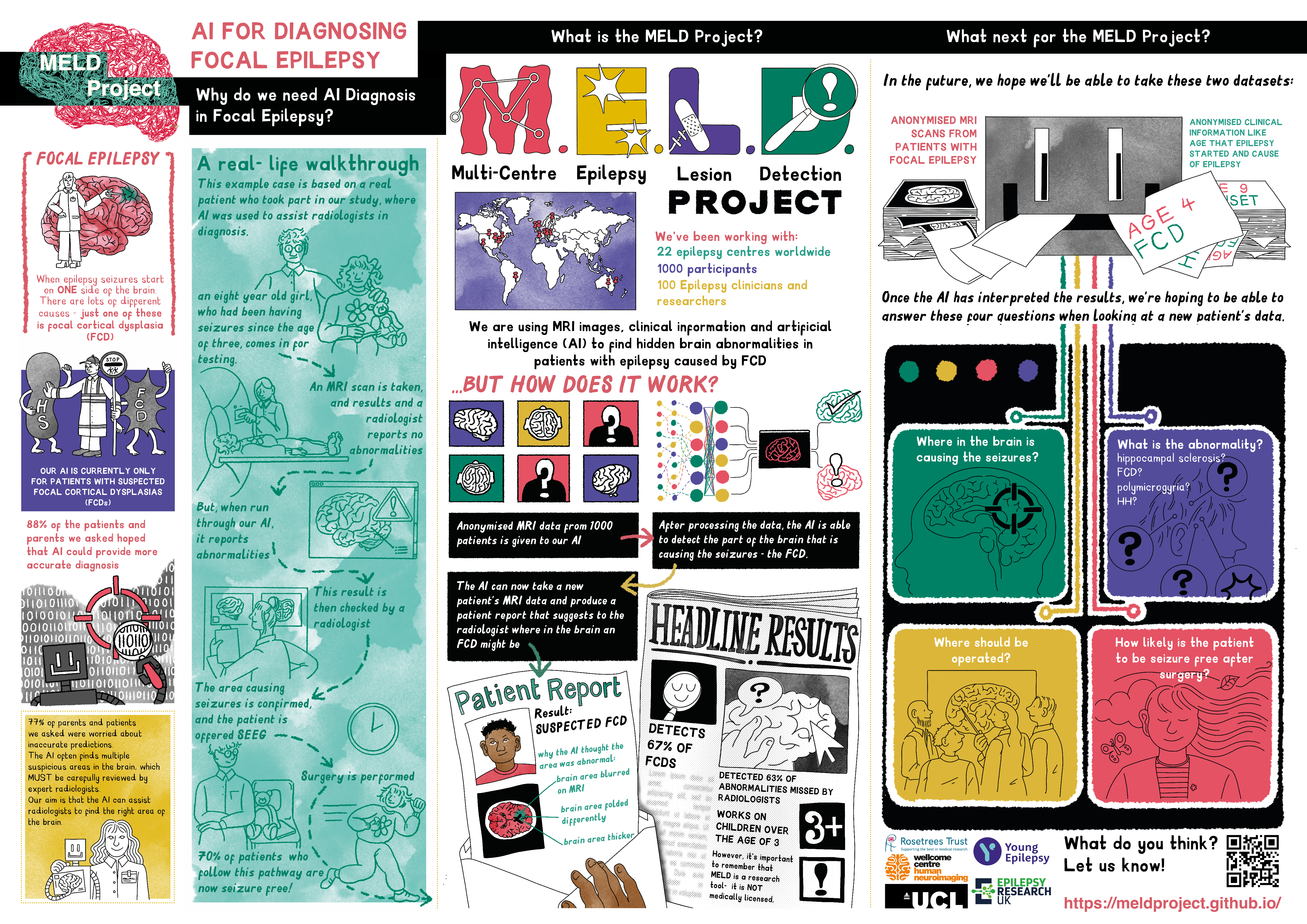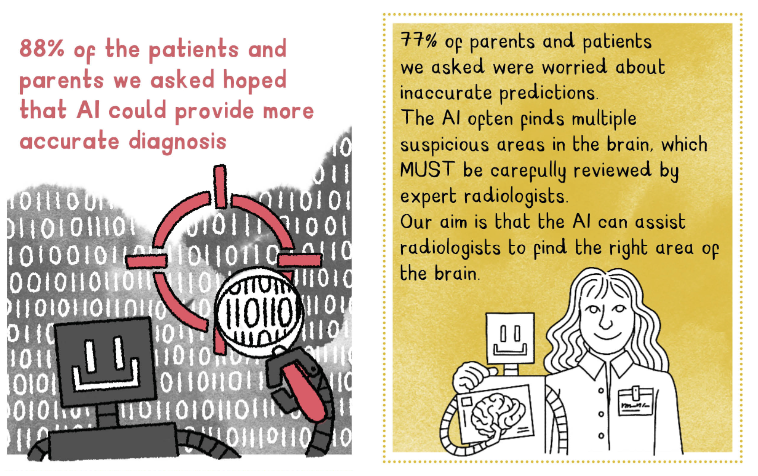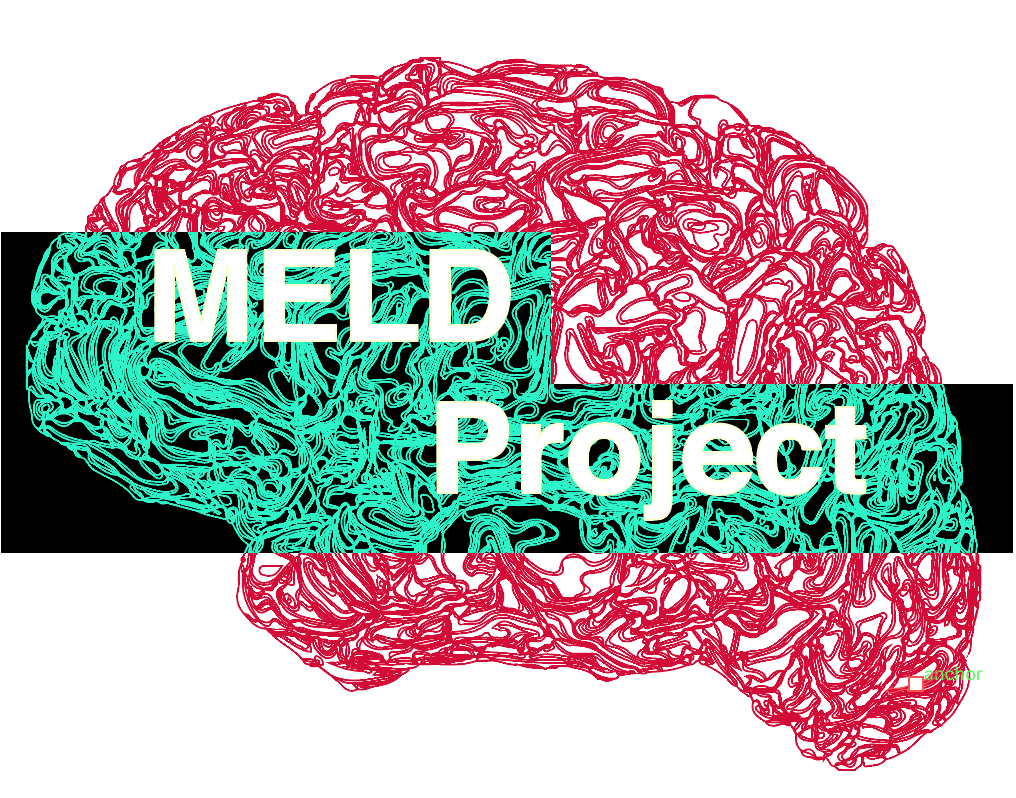AI for Diagnosing Focal Epilepsy: A collaborative project to co-develop an information sheet with patients and their families

Anonymised data from medical notes and images from MRI scans is being used in epilepsy research. This includes using state-of-the-art artificial intelligence to better understand, diagnose, treat and predict outcomes in epilepsies.
How do patients and their families feel about this type of research and their / their child’s medical data being used?
What is important for patients and their families to know about these types of technologies?
In December 2022 - January 2023, Dr Konrad Wagstyl (UCL) and Dr Sophie Adler (UCL), in collaboration with Dr Jonny O’Muircheartaigh (neuroscientist at KCL) and epilepsy charities (Epilepsy Research UK and Young Epilepsy), launched a public engagement project to find this out and work with patients and their families to co-create an information sheet about the MELD Project.
54 patients or parents/guardians of children with drug-resistant epilepsy responded to the online questionnaire about Big Data and AI in epilepsy research. This provided incredibly useful information about the HOPES and FEARS patients and their families have about big data and AI research.

We ran a focus group at Young Epilepsy with parents of children with complex epilepsy to find out more information about what was important for parents to know about these types of technologies if they were to be used in their child’s care. This included collaboratively working on a template information sheet and adapting it to focus on information patients and their parents felt was important. We then worked with a fantastic illustrator, Bridget Meyne, to create a visually appealing infographic. Parents of children with epilepsy, researchers, clinicians and epilepsy charities all provided invaluable feedback for the final information sheet.
The final information sheet, AI for Diagnosing Focal Epilepsy, can be downloaded here
The project was funded by the WCHN Public Engagement Innovation Grant. We would like to thank the volunteers who took part, and Bridget Meyne for transforming scribbles and ideas into beautiful illustrations.
